Introductions
Sahih al-Bukhari is one of the most reliable and authentic collections of hadith in Islam, compiled by the renowned scholar Imam Muhammad al-Bukhari (810-870 CE). It is considered the most authentic book after the Quran and is central to Islamic literature. This article selects 10 Best Quotes on Prayer and Worship from Sahih al-Bukhari on worship and prayer for the sake of refreshing faith.
Imam Bukhari devoted 16 years of his life to meticulously compiling this monumental work. He traveled extensively throughout the Islamic world, collecting narrations from over 1,000 scholars, and scrutinizing the transmission (isnad) and text (matan) of each hadith. Of the approximately 600,000 narrations he collected, he included only 7,563 hadiths (including repetitions) in his *Sahih*, applying the strictest standards of authenticity. His method established the standard of hadith knowledge and earned his collection the title of *Sahih* (authentic).
The hadiths in *Sahih Al-Bukhari* cover a wide range of topics, including faith, worship, ethics, jurisprudence, and the life of the Prophet Muhammad (peace and blessings of Allah be upon him).
نماز کی اہمیت

The Prophet (ﷺ) said, “The first thing for which a person will be brought to account on the Day of Resurrection will be his Salah (prayer). If it is found to be complete, it will be recorded as complete, and if anything is lacking, He will say, ‘Look and see if you can find any voluntary prayers to make up for what he neglected in his obligatory prayers.'”
(Sahih al-Bukhari, Book 9, Hadith 1)
نماز میں سجدہ

The Prophet (ﷺ) said, “The closest a servant comes to his Lord is when he is prostrating himself in prayer, so make supplication (in this state).”
(Sahih al-Bukhari, Book 29, Hadith 42)
نفلی نمازیں
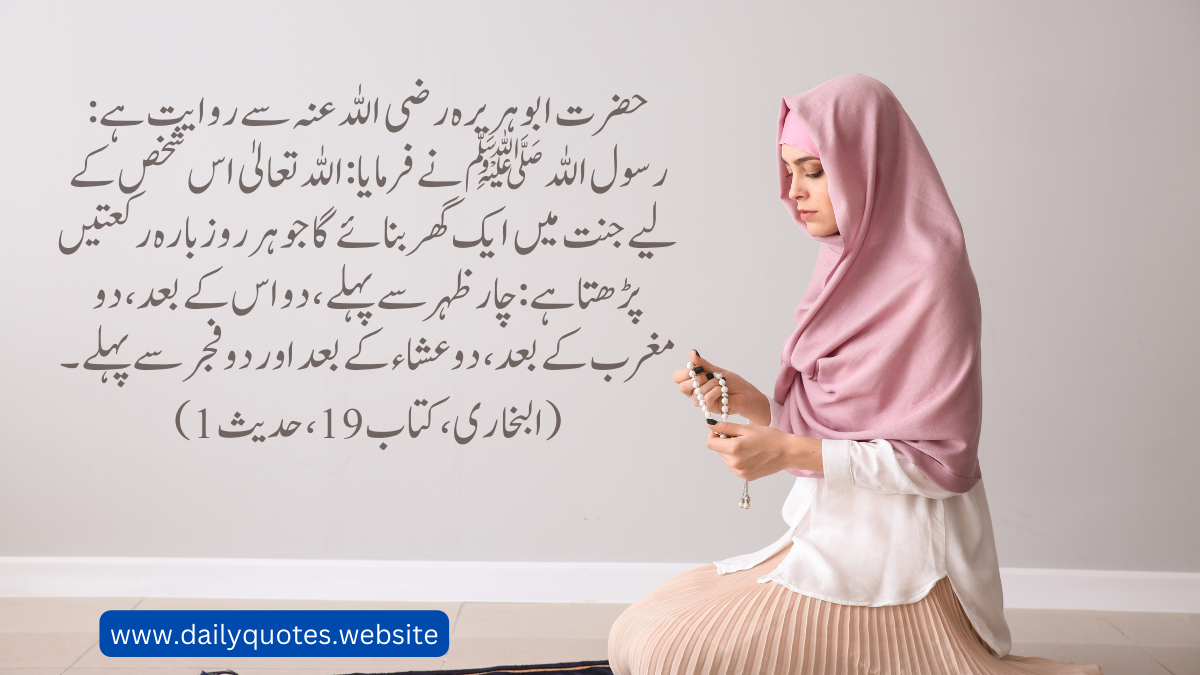
The Prophet (ﷺ) said, “Allah will build a house in Paradise for whoever is diligent in observing twelve Rak’ahs (of Sunnah prayers) every day: four before Zuhr, two after it, two after Maghrib, two after Isha, and two before Fajr.”
(Sahih al-Bukhari, Book 19, Hadith 1)
با جماعت نماز کی اہمیت
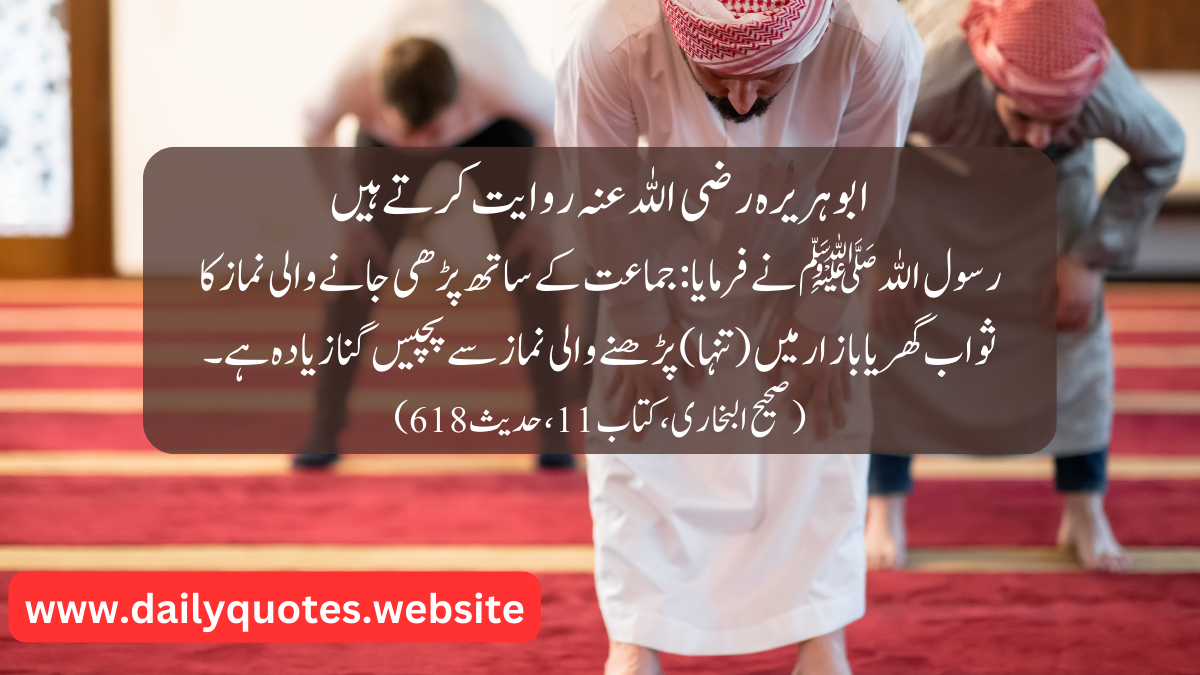
The Prophet (ﷺ) said, “The reward of the prayer offered by a person in congregation is twenty-five times greater than that of the prayer offered in one’s house or in the market (alone).”
(Sahih al-Bukhari, Book 11, Hadith 618)
جمعہ کی نماز

The Prophet (ﷺ) said, “When it is Friday, the angels stand at the gate of the mosque and write down the names of the people who enter the mosque in succession. When the Imam sits (on the pulpit), they close their scrolls and come to listen to the Khutbah.”
(Sahih al-Bukhari, Book 13, Hadith 51)
تہجد کی نمار کی اہمیت

The Prophet (ﷺ) used to offer his night prayer while I was sleeping across in his bed. Whenever he intended to offer the Witr prayer, he would wake me up and I would offer the Witr prayer too.
(Sahih al-Bukhari, Book 21, Hadith 263)
روزہ کی اہمیت
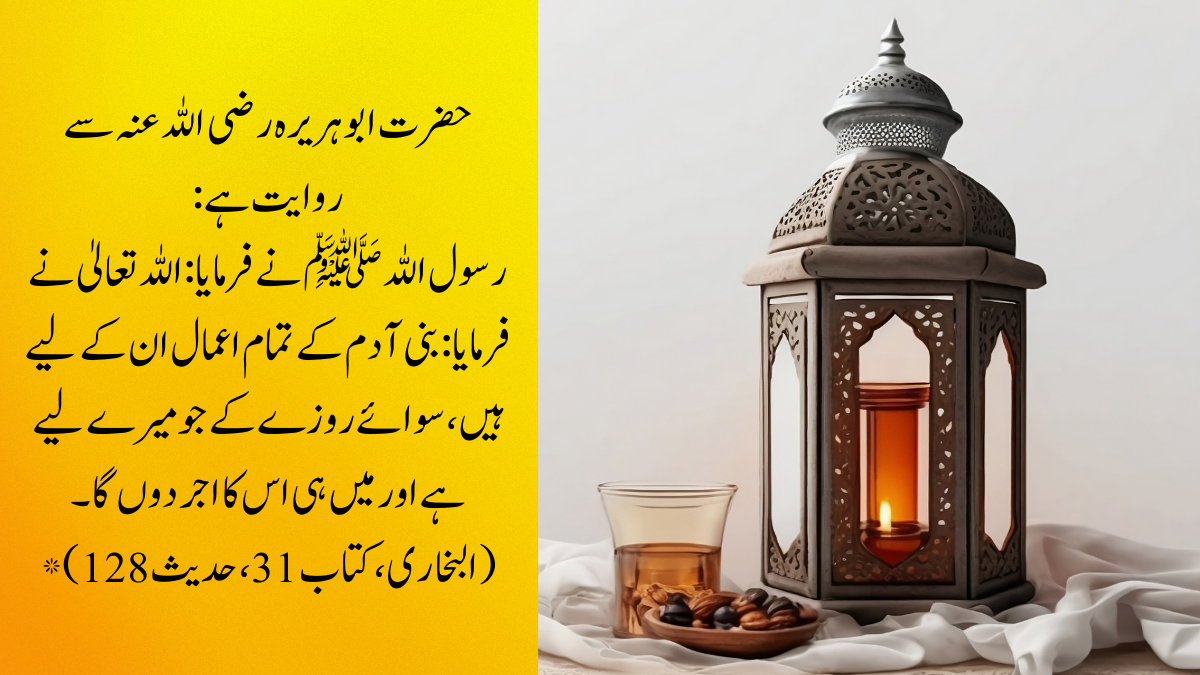
The Prophet (ﷺ) said, “Allah said, ‘All the deeds of Adam’s sons (people) are for them, except fasting which is for Me, and I will give the reward for it.'”
(Sahih al-Bukhari, Book 31, Hadith 128)
عبادات کی نیت
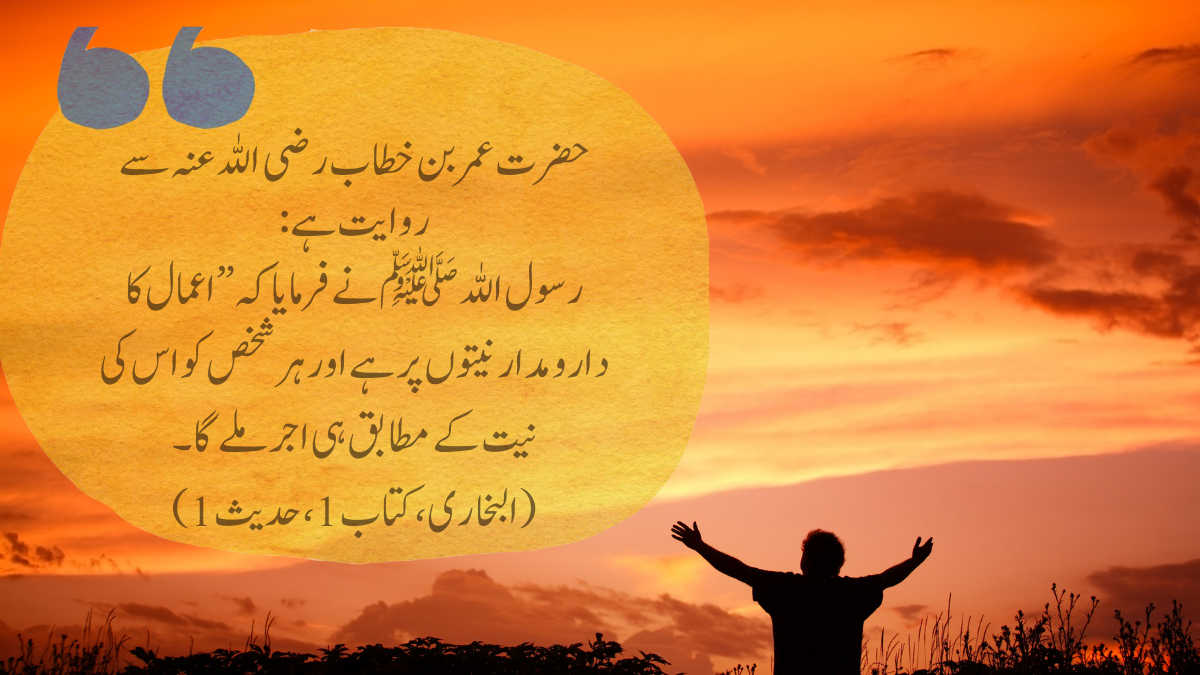
The Prophet (ﷺ) said, “The reward of deeds depends upon the intentions, and every person will get the reward according to what he has intended.”
(Sahih al-Bukhari, Book 1, Hadith 1)
عبادات کی اہمیت
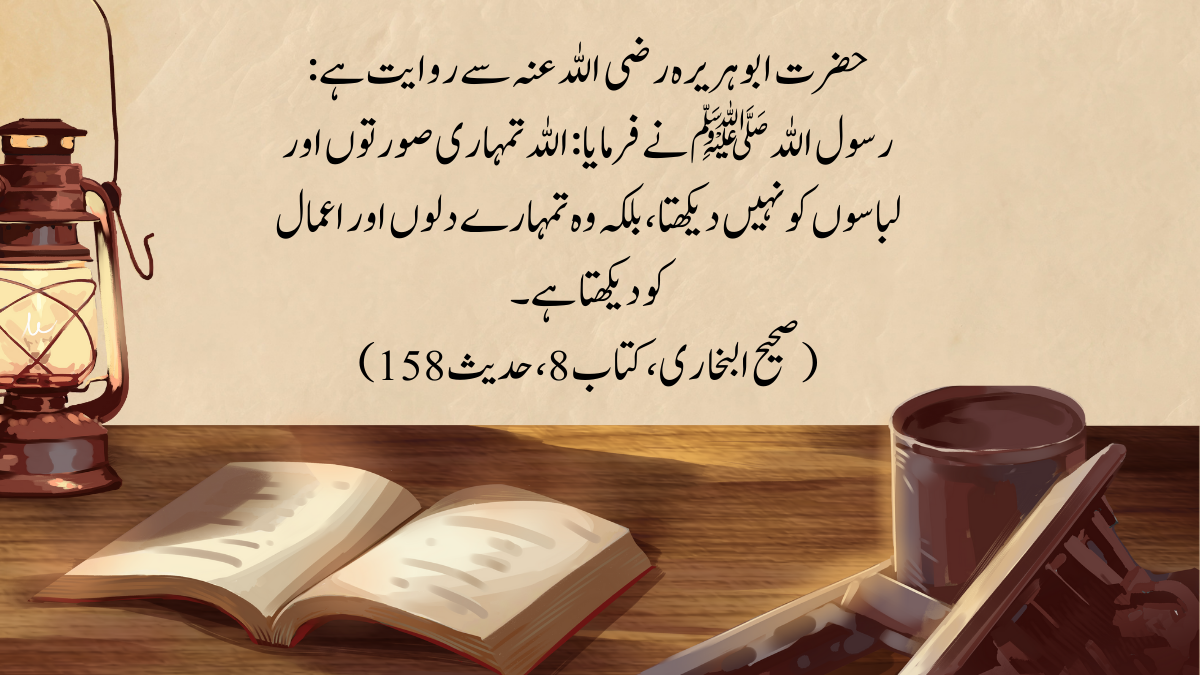
The Prophet (ﷺ) said, “Allah does not look at your figures, nor at your attire, but He looks at your hearts and deeds.”
(Sahih al-Bukhari, Book 8, Hadith 158)
ذکرِ الہی کی اہمیت
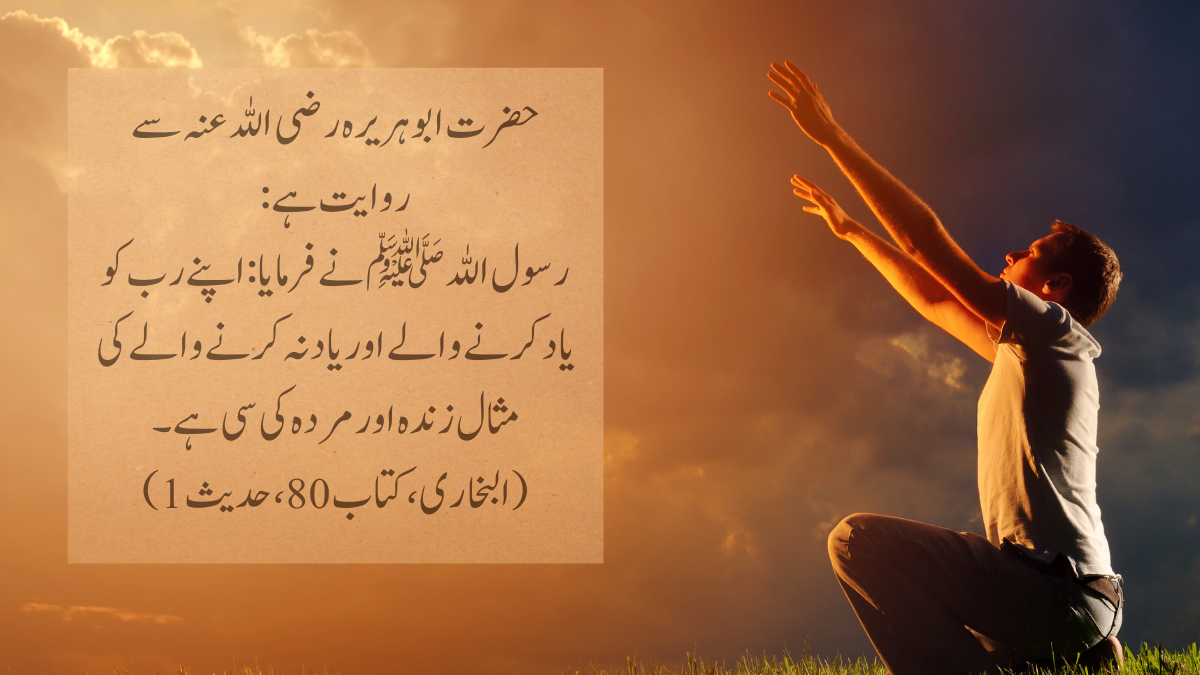
The Prophet (ﷺ) said, “The example of the one who remembers his Lord and the one who does not remember Him is like the example of the living and the dead.”
(Sahih al-Bukhari, Book 80, Hadith 1)









